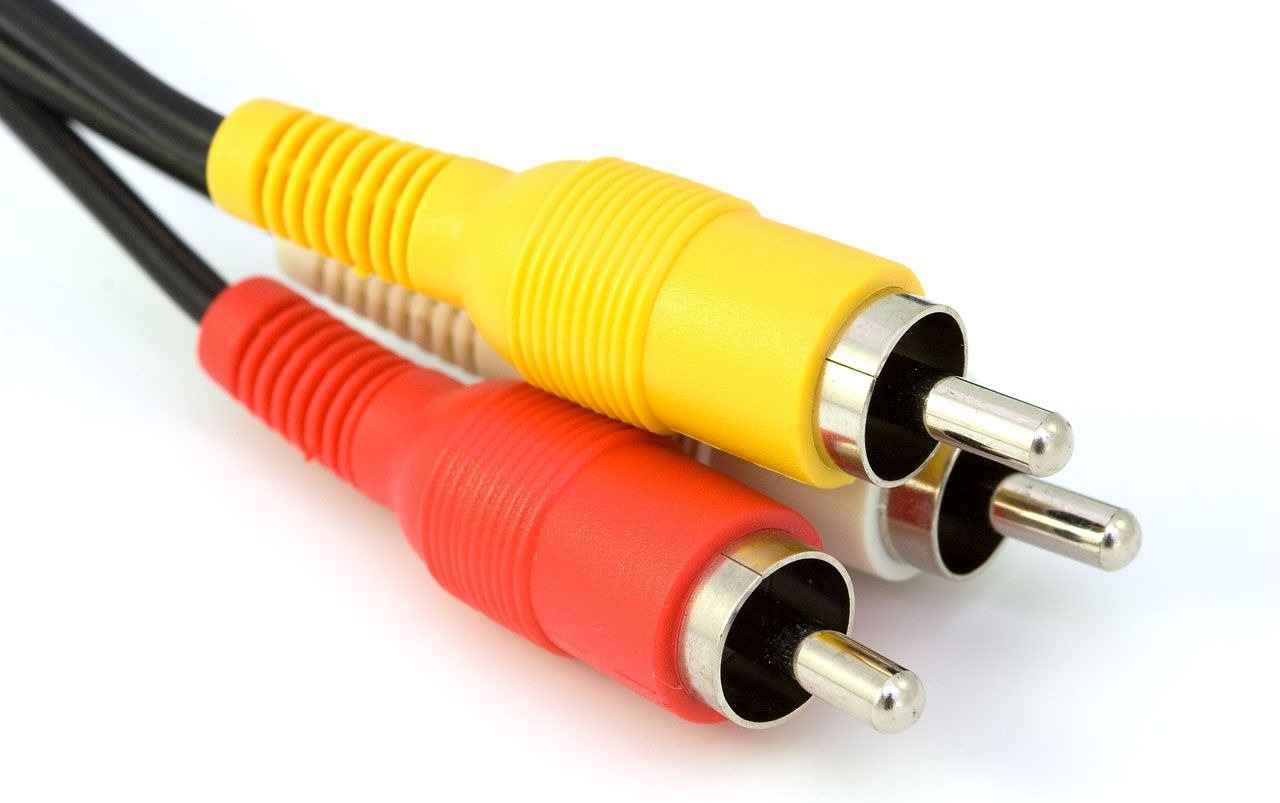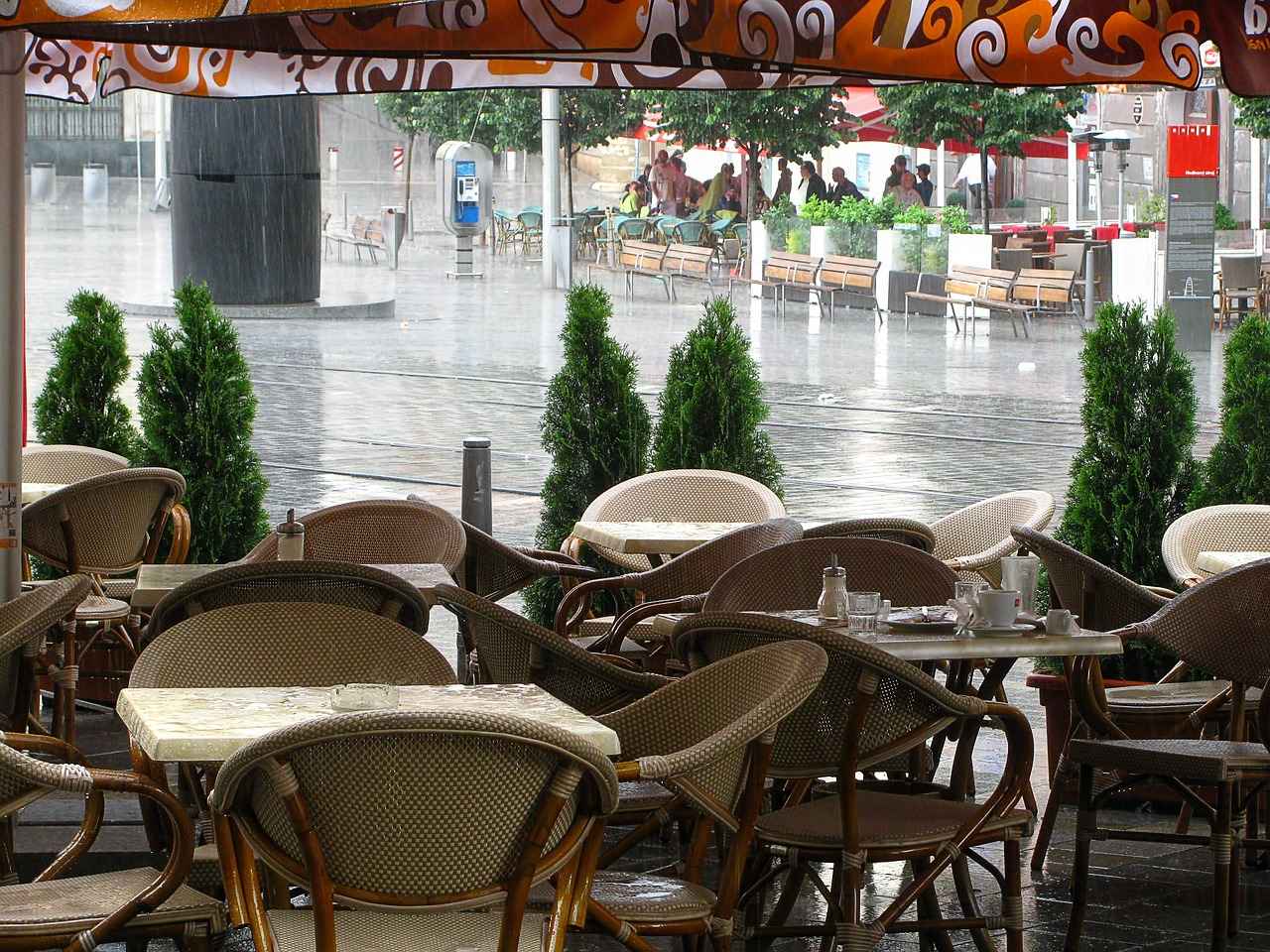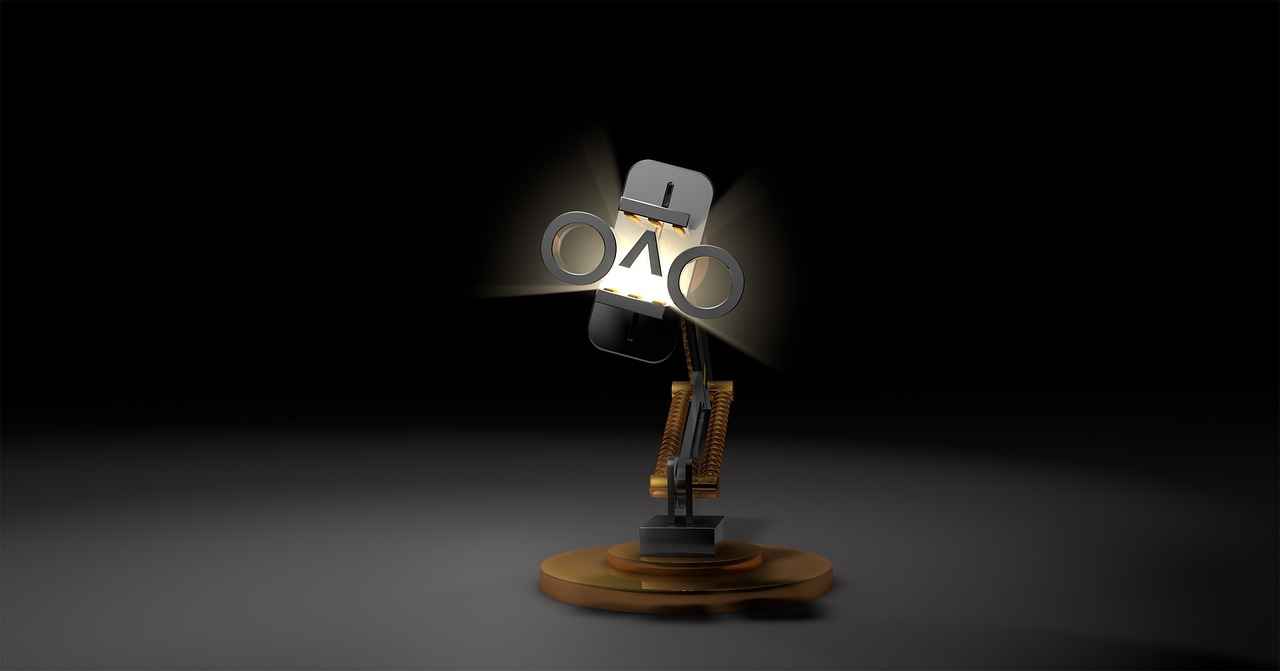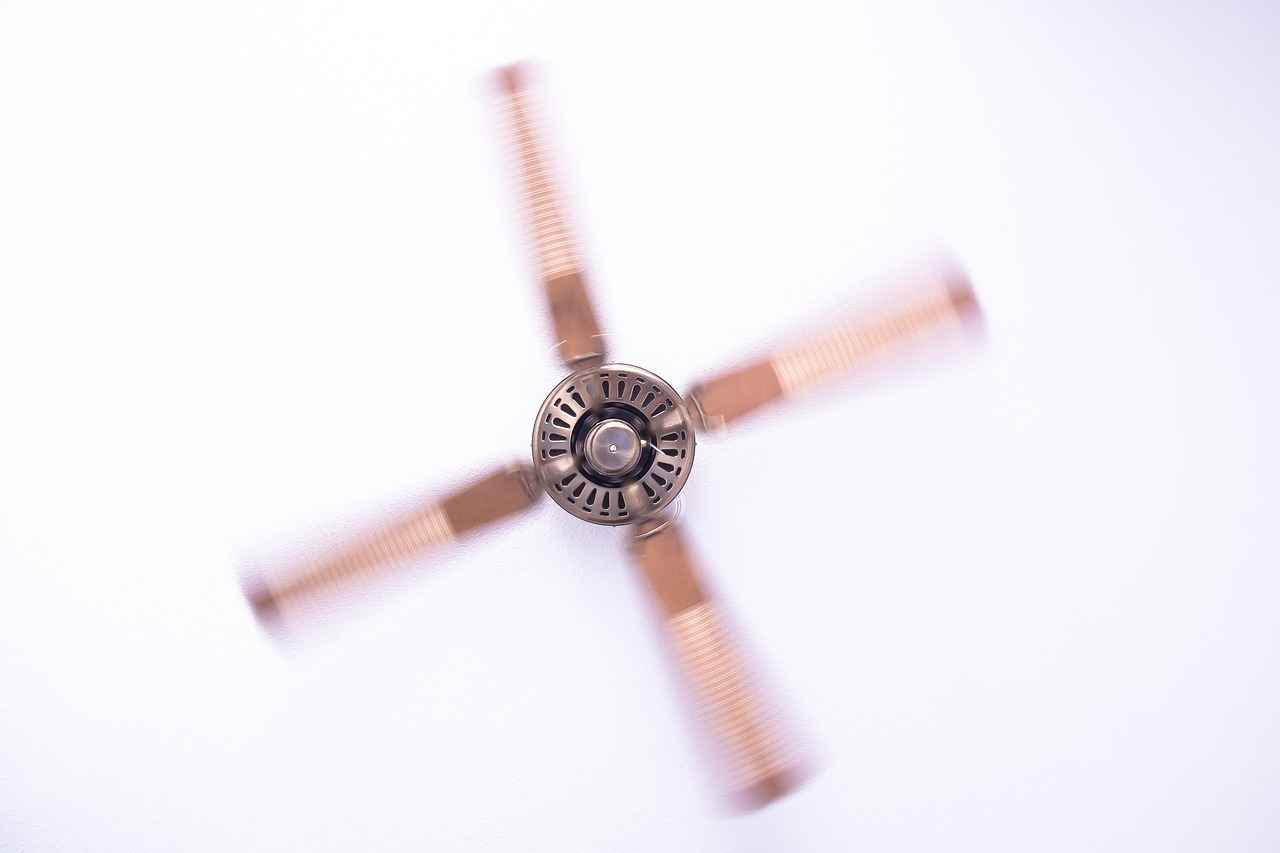Wifelivers is an intriguing online trend that has recently re-emerged in various discussion forums, captivating a wide audience of internet users. This article delves into the essence of Wifelivers, tracing its origins and examining the factors contributing to its renewed popularity.
Wifelivers is a niche community that revolves around the concept of forming emotional and virtual relationships with fictional characters, primarily from anime, video games, and other forms of media. Participants engage in a variety of activities that allow them to connect with these characters on a deeper level, often creating elaborate backstories and narratives that enhance their experiences. This subculture is not merely about admiration; it encompasses a unique blend of creativity, emotional investment, and community interaction.
The resurgence of Wifelivers can be attributed to several social dynamics. Nostalgia plays a significant role, as many participants have grown up with these characters and are revisiting their childhood interests. Additionally, the growth of online communities has fostered spaces where individuals can share their experiences and creativity without fear of judgment. Furthermore, there is a growing acceptance of diverse relationship dynamics in modern society, allowing more people to explore their interests openly.
The Wifelivers phenomenon traces its roots back to the early 2000s, emerging within anime and gaming communities. Initially, it was a relatively underground movement, but as social media platforms gained traction, it began to flourish. Various forums and websites dedicated to fan art, role-playing, and storytelling have contributed to its evolution, allowing fans to connect and collaborate in unprecedented ways.
- Emotional Connections: Participants often form deep emotional ties with their chosen characters, treating them as companions.
- Creative Expression: Many engage in fan art, fan fiction, and role-playing, showcasing their creativity and passion.
- Community Engagement: Wifelivers communities are characterized by strong interpersonal relationships among members, who often share experiences and support each other.
Wifelivers communities attract a diverse range of participants, including gamers, anime enthusiasts, and individuals seeking companionship in unconventional forms. The common thread among members is a shared passion for specific characters or franchises, creating a sense of belonging and understanding. This diversity enriches the community, allowing for a wide array of perspectives and experiences.
Joining Wifelivers communities can offer numerous benefits, including:
- A Sense of Belonging: Members often find a supportive network where they can express their interests freely.
- Creative Outlets: The community encourages creativity through fan art, storytelling, and role-playing.
- Social Interaction: Participants can forge friendships and connections with like-minded individuals.
Interactions within Wifelivers communities take various forms, such as:
- Role-Playing: Participants often engage in role-playing scenarios, embodying their characters in imaginative narratives.
- Fan Fiction: Many create elaborate stories that explore the lives and personalities of their characters.
- Collaborative Storytelling: Community members may work together to develop intricate plots and character arcs.
Despite its appeal, Wifelivers has faced criticism for potentially fostering escapism and detachment from reality. Some critics argue that it may lead to unhealthy relationship dynamics or hinder individuals from forming real-life connections. However, proponents argue that as long as participants maintain a healthy balance, the benefits can outweigh the drawbacks.
For many, Wifelivers can serve as a positive coping mechanism, providing comfort and companionship in times of stress. However, it is essential to approach this phenomenon with balance, as excessive immersion can lead to isolation or reinforce negative feelings. Engaging with the community in moderation can enhance mental well-being without overshadowing real-life interactions.
Social media platforms have been instrumental in the resurgence of Wifelivers, facilitating connections among users and allowing them to share their experiences. These platforms enable the creation of content that fuels community growth, making it easier for newcomers to find their place within the Wifelivers landscape.
Certain characters have gained iconic status within the Wifelivers community, often due to their relatability and emotional depth. These characters vary across genres, but they all share a common trait of resonating deeply with fans, allowing for rich emotional connections.
Wifelivers communities typically utilize forums, Discord servers, and social media groups to facilitate discussions and share content. This organizational structure fosters collaboration and a sense of belonging among members, promoting a vibrant and interactive environment.
As technology continues to advance, the Wifelivers community may see new trends emerge, such as virtual reality experiences and AI-driven interactions. These innovations could further blur the lines between fiction and reality, enhancing the immersive experiences for participants.
Getting involved in Wifelivers is straightforward. Interested individuals can join online forums, participate in discussions, and explore fan communities that share their interests. Engaging with like-minded individuals can lead to enriching experiences and deeper connections.
Ethical discussions within Wifelivers often revolve around topics such as consent, representation, and the impact of fictional relationships on real-life interactions. Addressing these issues is crucial for fostering a healthy and inclusive community that respects diverse perspectives.
Finding a balance between fictional relationships and real-life interactions is essential for Wifelivers. Many participants actively engage in both worlds, ensuring that their experiences remain healthy, fulfilling, and enriching.
In conclusion, Wifelivers represents more than just a fleeting trend; it embodies a unique intersection of fandom, creativity, and emotional connection. As the community continues to evolve, understanding the dynamics of Wifelivers can provide valuable insights into human relationships and the impact of digital culture.

What Is Wifelivers?
Wifelivers is an intriguing online community that has gained traction in recent years, particularly among fans of anime and video games. This phenomenon revolves around the concept of forming virtual relationships with fictional characters, allowing individuals to explore emotional connections in a unique and imaginative way. In this article, we will delve deeper into what Wifelivers is, its appeal, and the dynamics that make it a vibrant part of modern internet culture.
At its core, Wifelivers is a niche online community where members cultivate emotional bonds with fictional characters, often those from popular media such as anime, manga, and video games. This subculture is not merely about fandom; it encompasses a deeper engagement that allows individuals to experience relationships that, while fictional, can feel profoundly real. Participants often refer to these characters as “waifus” (female) or “husbandos” (male), terms derived from the combination of “wife” or “husband” and “Japanese.” These relationships can range from simple admiration to complex emotional attachments.
One of the key elements that define Wifelivers is the creative expression that flourishes within the community. Members engage in activities such as fan art, fan fiction, and role-playing, which serve to enhance their connections with these characters. For many, these activities provide an outlet for creativity and a way to share their passions with like-minded individuals. Moreover, the community often fosters a sense of belonging, as members can discuss their feelings and experiences without fear of judgment.
The rise of Wifelivers can be traced back to the early 2000s, coinciding with the growth of online forums and social media platforms. As technology evolved, so did the ways in which fans could connect and share their experiences. Today, platforms like Discord, Reddit, and various fan sites serve as hubs where individuals can come together to celebrate their favorite characters and explore the emotional landscapes of their fictional relationships.
Furthermore, Wifelivers is often viewed through the lens of modern relationship dynamics. In a world where traditional relationships can be challenging, the idea of connecting with a fictional character offers a form of escapism. It allows individuals to explore romantic ideals without the complexities that come with real-life interactions. This aspect has contributed to its popularity, especially among those who may feel isolated or struggle to form connections in their daily lives.
In summary, Wifelivers represents a unique intersection of fandom, creativity, and emotional exploration. By engaging with fictional characters, individuals find a space to express their feelings and connect with others who share similar interests. As this community continues to grow, it will undoubtedly evolve, reflecting the changing landscape of relationships in the digital age.

Why Is Wifelivers Gaining Popularity Again?
The phenomenon of Wifelivers has seen a remarkable resurgence in recent years, captivating audiences across various online platforms. This revival can be attributed to a combination of nostalgia, the expansion of online communities, and a growing acceptance of alternative relationship dynamics in contemporary society. Understanding these factors provides insight into why Wifelivers are trending once again.
Nostalgia is a powerful emotion that can evoke a sense of longing for the past. For many Wifelivers, their journey began during the early 2000s, a time when anime and gaming culture started to flourish. As individuals reminisce about their childhood or teenage years spent in these vibrant communities, they often find themselves drawn back to this unique subculture. The characters that once held a special place in their hearts have now become symbols of cherished memories and experiences.
The growth of online communities has played a significant role in the resurgence of Wifelivers. Social media platforms, forums, and dedicated websites allow fans to connect with one another, share their experiences, and create content that celebrates their virtual relationships. These platforms foster a sense of belonging, enabling individuals to find like-minded people who share their interests. As more users join these communities, the visibility and popularity of Wifelivers increase, creating a cycle of engagement and interest.
As society evolves, so does the understanding of relationships. The increasing acceptance of alternative relationship dynamics has opened the door for Wifelivers to thrive. Individuals are becoming more comfortable exploring relationships that may not conform to traditional norms. This shift allows people to express their affection for fictional characters without fear of judgment. The freedom to engage in these relationships has made Wifelivers more appealing, as participants can explore their feelings in a safe, non-threatening environment.
Technology has transformed the way individuals interact with their favorite characters. Virtual reality, augmented reality, and interactive storytelling have made it possible for Wifelivers to engage with their beloved characters in new and exciting ways. These advancements allow fans to create immersive experiences, deepening their emotional connections. Additionally, the rise of streaming platforms has made it easier for fans to access content related to their favorite characters, further fueling their passion.
The resurgence of Wifelivers also raises questions about social interactions and mental health. While many find solace and companionship in these virtual relationships, it’s essential to strike a balance between fantasy and reality. Engaging in Wifelivers can provide emotional support, but it’s crucial for individuals to maintain real-life connections and experiences. The challenge lies in ensuring that these virtual interactions enhance rather than replace genuine human relationships.
In conclusion, the resurgence of Wifelivers is a multifaceted phenomenon fueled by nostalgia, the growth of online communities, and changing societal attitudes toward relationships. As technology continues to evolve, so too will the ways in which fans engage with their favorite characters, ensuring that Wifelivers remain a relevant and intriguing aspect of modern digital culture.

How Did Wifelivers Start?
The Wifelivers phenomenon has become a captivating subject in online communities, particularly among fans of anime and gaming. To understand how this unique culture began, we need to explore its roots, development, and the factors that contributed to its rise.
The Wifelivers phenomenon emerged in the early 2000s, primarily within the vibrant circles of anime and gaming enthusiasts. This period marked a significant shift in how fans interacted with their favorite characters, allowing for deeper emotional connections and imaginative engagement. At the heart of this phenomenon is the concept of virtual relationships, where fans develop a strong attachment to fictional characters, often referring to them as “waifus” or “husbandos.”
Initially, the term “waifu” originated from the Japanese pronunciation of the English word “wife.” It began circulating in online forums, particularly on sites like 4chan and various anime discussion boards. As fans shared their love for specific characters, they created a space where these fictional relationships could flourish. This was a time when internet culture was becoming more mainstream, and social media platforms were beginning to take shape, providing a fertile ground for such communities to grow.
As the Wifelivers community expanded, it began to incorporate various forms of creative expression. Fans started creating fan art, writing fan fiction, and engaging in role-playing scenarios that allowed them to explore their relationships with these characters in a more immersive way. These activities not only fostered a sense of belonging among participants but also encouraged collaboration and shared storytelling, further deepening the community’s bonds.
The evolution of technology played a crucial role in the growth of Wifelivers. With the rise of social media platforms like Tumblr, Reddit, and later, Discord, fans found new ways to connect and share their experiences. These platforms facilitated discussions about character development, plotlines, and personal anecdotes, allowing members to engage on a more intimate level. As a result, Wifelivers became more than just a trend; it transformed into a significant aspect of fan culture.
Moreover, the increasing acceptance of alternative relationship dynamics in contemporary society has contributed to the resurgence of Wifelivers. As people began to explore various forms of connection, including those with fictional characters, the stigma surrounding these relationships diminished. This shift has encouraged more individuals to openly identify as Wifelivers, further solidifying the community’s presence.
In summary, the Wifelivers phenomenon began as a niche interest within anime and gaming communities but has since evolved into a vibrant subculture. Its growth can be attributed to the rise of online platforms that facilitate interaction, the creative expressions of its members, and the changing societal perceptions of relationships. Today, Wifelivers continues to thrive, showcasing the power of fandom and the unique connections that can arise from shared interests.

What Are the Characteristics of Wifelivers?
Wifelivers communities are a fascinating blend of creativity, emotional investment, and shared interests that revolve around fictional characters. These communities have unique characteristics that set them apart from other fandoms. Understanding these traits can provide insight into the motivations and experiences of individuals who participate in Wifelivers. Below, we explore the defining characteristics that make Wifelivers communities so engaging and vibrant.
One of the most significant characteristics of Wifelivers communities is their strong emotional connections with fictional characters. This emotional bond often transcends mere admiration; it becomes a profound attachment that can influence participants’ daily lives. Fans often express their feelings through various forms of creative output, such as fan art, fan fiction, and even cosplay. These artistic expressions serve as a means to explore and celebrate their connections with characters, allowing them to share their passion with others.
- Creative Fan Art: Many Wifelivers create stunning illustrations or digital art that depict their favorite characters in various scenarios. This creativity not only showcases their artistic skills but also deepens their emotional ties to the characters.
- Storytelling and Role-Playing: Storytelling is a cornerstone of the Wifelivers community. Participants often engage in role-playing activities, where they embody their favorite characters in imaginative narratives. This form of interaction allows fans to explore different aspects of a character’s personality and backstory, further enriching their experience.
- Collaborative Projects: Many Wifelivers collaborate on projects that involve writing, art, or even video content. These group endeavors foster a sense of community, as members work together to create something meaningful that reflects their shared interests.
Another defining characteristic of Wifelivers is the supportive environment that these communities provide. Many individuals find solace in the understanding and acceptance offered by fellow fans. In a world that can often feel isolating, Wifelivers communities become a safe haven where members can share their experiences without fear of judgment. This sense of belonging encourages open discussions about personal feelings, relationships, and the impact of fictional characters on their lives.
Furthermore, Wifelivers communities often prioritize diversity and inclusivity. Members come from various backgrounds, cultures, and experiences, which enriches the community’s tapestry. This diversity allows for a wide range of perspectives and interpretations regarding characters and narratives, fostering a more profound understanding of the stories that resonate with fans.
Lastly, the use of technology plays a vital role in these communities. Social media platforms, forums, and dedicated websites facilitate interaction and collaboration among fans. These digital spaces enable members to share their work, discuss their favorite characters, and connect with like-minded individuals across the globe. The accessibility of these platforms has significantly contributed to the growth and popularity of Wifelivers communities, making it easier for individuals to engage with their passions.
In summary, Wifelivers communities are characterized by strong emotional connections with fictional characters, creative expressions through fan art and storytelling, a supportive and inclusive environment, and the effective use of technology to foster interaction. These traits combine to create a vibrant and engaging community where members can explore their passions and connect with others who share similar interests.

Who Participates in Wifelivers Communities?
The Wifelivers community is a vibrant tapestry of individuals from various backgrounds, united by their passion for fictional characters and the unique relationships they cultivate. This diverse demographic includes a wide range of participants, each bringing their own experiences and perspectives to the table. Let’s delve deeper into the different groups that make up this fascinating community.
- Gamers: Many Wifelivers are avid gamers who find themselves deeply immersed in the worlds created by video games. These individuals often develop strong emotional connections with characters they encounter, leading to a desire for more profound interactions. The gaming experience allows them to explore complex narratives and form attachments that extend beyond the screen.
- Anime Enthusiasts: Anime fans are another significant segment of the Wifelivers community. They are drawn to the rich storytelling and character development found in anime series. The emotional depth of these characters often resonates with viewers, prompting them to engage in creative expressions, such as fan art or fan fiction, centered around their favorite characters.
- Cosplayers: Cosplayers are individuals who enjoy dressing up as their favorite characters from anime, video games, or other media. This form of expression not only showcases their creativity but also fosters a sense of belonging within the Wifelivers community. By embodying their beloved characters, cosplayers create a unique bridge between fiction and reality.
- Lonely Hearts: Some participants join Wifelivers communities seeking companionship and understanding. For individuals who may struggle with social interactions or feel isolated in their daily lives, these virtual relationships provide a safe haven. The community offers a non-judgmental space where they can share their experiences and connect with like-minded individuals.
- Creative Writers: Many members are also talented writers who contribute to the community through storytelling. They craft fan fiction, explore alternative endings, or develop new narratives that expand on existing characters’ journeys. This creative outlet not only enhances their connection to the characters but also enriches the overall community experience.
These diverse groups come together to form a rich and supportive environment within Wifelivers communities. The shared love for specific characters or franchises fosters a sense of belonging and camaraderie, allowing participants to express themselves freely and creatively. Whether through role-playing, sharing artwork, or simply discussing their favorite moments, Wifelivers find joy in their interactions.
As the community continues to grow, it remains essential to acknowledge the various backgrounds and motivations of its participants. Understanding the unique perspectives they bring can help foster a more inclusive and accepting environment for all.

What Are the Benefits of Joining Wifelivers Communities?
Joining Wifelivers communities can be a transformative experience for many individuals, offering a plethora of benefits that cater to emotional, creative, and social needs. These communities, which revolve around virtual relationships with fictional characters, provide a unique space for people to connect and express themselves. Below, we explore some of the key advantages of being part of Wifelivers communities.
- A Sense of Belonging: One of the most significant benefits of joining Wifelivers communities is the profound sense of belonging that comes with it. Members often find themselves surrounded by like-minded individuals who share similar interests and passions. This shared enthusiasm fosters a welcoming environment where everyone feels accepted and valued. In a world where many people feel isolated, being part of a community that embraces your interests can be incredibly uplifting.
- Creative Expression: Wifelivers communities encourage creative expression in various forms. Whether it’s through fan art, fan fiction, or role-playing, members have ample opportunities to showcase their talents and creativity. This not only enhances the enjoyment of their favorite characters but also allows individuals to explore their artistic sides in a supportive environment. Many find that engaging in these creative outlets can be therapeutic and fulfilling.
- Social Interaction: These communities offer a platform for social interaction that is often free from judgment. Members can discuss their favorite characters, share personal stories, or even collaborate on creative projects. This social aspect is particularly beneficial for those who may struggle with traditional social settings, as the online nature of Wifelivers communities allows for more comfortable interactions. The friendships formed in these spaces can be just as meaningful as those in real life.
- Safe and Judgment-Free Environment: Within Wifelivers communities, members can express their feelings and thoughts without fear of judgment. This safe space allows individuals to explore their emotions and connect with others who understand their experiences. It’s a refreshing change from the often critical nature of the outside world, where people may feel pressured to conform to societal norms.
- Support and Understanding: Many members turn to Wifelivers communities not just for entertainment, but also for support during difficult times. The shared experiences and emotional connections with fictional characters can provide comfort and solace. Members often find that discussing their feelings and experiences with others who understand can lead to valuable insights and emotional healing.
In summary, joining Wifelivers communities can significantly enhance one’s social life, emotional well-being, and creative pursuits. The blend of belonging, creativity, and supportive interaction creates a rich tapestry of experiences that can positively impact individuals from all walks of life. Whether you’re looking for friendship, a creative outlet, or simply a place to belong, Wifelivers communities offer a unique and fulfilling environment.

How Do Wifelivers Interact with Their Characters?
Interactions within Wifelivers communities are rich and varied, allowing participants to engage with their favorite fictional characters in ways that deepen their emotional connections and enhance their overall experience. These interactions can take numerous forms, each offering a unique avenue for exploration and creativity.
Role-Playing is one of the most popular methods of interaction within Wifelivers communities. Participants often create detailed characters that may resemble or even be inspired by their favorite fictional characters. This immersive experience allows individuals to step into the shoes of their characters, navigating through imagined scenarios that can range from light-hearted adventures to dramatic confrontations. Role-playing not only fosters creativity but also encourages collaboration among participants, as they often engage in group narratives where each person contributes to the unfolding story. This collaborative storytelling aspect allows for the exploration of complex character dynamics and relationships, enhancing the overall depth of the interaction.
Another significant form of engagement is through fan fiction. Many Wifelivers find joy in writing stories that expand upon the worlds of their beloved characters. This creative outlet enables fans to explore “what if” scenarios, alternate endings, or even entirely new adventures. Fan fiction serves as a platform for individuals to express their interpretations of characters, often delving into their personalities, backstories, and motivations. This not only enriches the fan’s understanding of the character but also invites others to see these characters from different perspectives, fostering a deeper appreciation for the source material.
Collaborative storytelling plays a crucial role in how Wifelivers interact with their characters. This can occur through various mediums, including online forums, social media platforms, or dedicated websites. Participants often work together to create intricate narratives that involve multiple characters, allowing for a shared experience that enhances their connections. This form of storytelling can lead to the development of entire worlds, complete with lore and character arcs, that exist independently of the original source material. The collaborative nature of this activity encourages creativity and teamwork, as participants must communicate effectively to weave their individual contributions into a cohesive narrative.
Moreover, these interactions can often include artistic expressions, such as fan art or digital content creation. Many Wifelivers take pride in visually representing their characters, which can further solidify their emotional connections. By sharing these creations within the community, participants receive feedback and encouragement, fostering a sense of belonging and mutual appreciation.
In summary, the interactions within Wifelivers communities are multifaceted, encompassing role-playing, fan fiction, collaborative storytelling, and artistic expression. These activities not only enrich the participants’ experiences but also create a vibrant community where individuals can explore their passion for fictional characters while forming meaningful connections with others who share similar interests.

What Are the Criticisms of Wifelivers?
Wifelivers, while an intriguing phenomenon that offers unique virtual relationships, has not escaped scrutiny. The criticisms surrounding Wifelivers often revolve around its potential to foster escapism and create a detachment from reality. Critics raise concerns that this immersion in fictional relationships could lead to unhealthy dynamics in personal lives, affecting how individuals perceive and engage in real-world connections.
One of the primary criticisms of Wifelivers is that it may promote a form of escapism that detracts from real-life responsibilities and relationships. Participants often invest significant time and emotional energy into their virtual connections, which can lead to neglect of their physical relationships and social obligations. Critics argue that this detachment can create a distorted view of love and companionship, where the idealized traits of fictional characters overshadow the complexities of genuine human interactions.
Moreover, some mental health professionals express concern that individuals who heavily engage with Wifelivers may be using these relationships as a coping mechanism for underlying issues, such as loneliness or social anxiety. While these virtual relationships can provide comfort, they might also prevent individuals from seeking real-life connections or addressing their emotional needs in healthier ways. This reliance on fictional relationships could lead to a cycle of isolation, making it harder for individuals to develop the skills necessary for forming meaningful connections in the real world.
Furthermore, the nature of these relationships can sometimes create unrealistic expectations. When individuals become attached to fictional characters, they may find it challenging to relate to actual partners, leading to disappointment or frustration in real-life dating scenarios. This phenomenon raises questions about the impact of idealization in relationships, as the traits that make fictional characters appealing—such as perfection, unwavering support, and lack of conflict—are seldom found in real people.
Additionally, there are ethical considerations regarding the portrayal of characters within the Wifelivers community. Some critics argue that certain representations can perpetuate harmful stereotypes or unrealistic ideals, particularly regarding gender roles and relationships. This can influence the perceptions of young fans who may internalize these portrayals as normative standards for their own relationships.
In summary, while Wifelivers communities offer a space for creativity and connection, they also present significant criticisms that warrant attention. The potential for escapism, unrealistic expectations, and the risk of neglecting real-life relationships are all important factors to consider. Engaging with Wifelivers can be a fulfilling experience, but it is crucial for participants to maintain a healthy balance between their virtual interactions and the complexities of real-world relationships.

How Does Wifelivers Influence Mental Health?
Understanding the influence of Wifelivers on mental health is crucial for both participants and observers of this unique phenomenon. As Wifelivers communities grow, so does the conversation surrounding their impact on emotional well-being. In this article, we will delve into how engaging with fictional characters can serve as both a coping mechanism and a potential source of isolation, emphasizing the importance of balance in these virtual relationships.
The concept of Wifelivers revolves around forming emotional connections with fictional characters, often found in anime, video games, or other forms of media. For many, these relationships provide a safe haven where they can express their feelings and escape the challenges of real life. Engaging with these characters can foster a sense of belonging and comfort, especially for individuals who may feel marginalized or disconnected from their immediate social circles.
One of the primary benefits of Wifelivers is the emotional support it offers. Many participants find solace in their interactions with these characters, allowing them to navigate their own feelings and experiences. For instance, someone dealing with anxiety or depression may turn to their favorite character for reassurance and validation. This can lead to a greater understanding of their emotions and a healthier coping strategy.
However, it is essential to recognize that reliance on fictional relationships can have drawbacks. If individuals become too immersed in their Wifelivers interactions, they may start to isolate themselves from real-life connections. This can exacerbate feelings of loneliness and reinforce negative emotions. In extreme cases, it may lead to a detachment from reality, where the line between fiction and real life becomes blurred.
To illustrate this point further, consider the following table that outlines the potential positive and negative effects of Wifelivers on mental health:
| Positive Effects | Negative Effects |
|---|---|
| Provides emotional support and comfort | Can lead to social isolation |
| Encourages creative expression and storytelling | Reinforces negative feelings if not balanced |
| Fosters a sense of community and belonging | May create unrealistic expectations in relationships |
Moreover, engaging with Wifelivers can also enhance self-awareness. Participants often reflect on their feelings and behaviors through their interactions with fictional characters, leading to personal growth. This self-reflection can be beneficial, as it encourages individuals to confront their issues rather than avoid them. However, maintaining a healthy perspective is critical. It’s essential for individuals to balance their virtual interactions with real-world relationships and experiences.
In conclusion, the influence of Wifelivers on mental health is multifaceted. While these virtual relationships can provide comfort and companionship, they also pose risks if not approached with balance. To ensure a healthy engagement with Wifelivers, individuals should strive to maintain connections in both the fictional and real worlds. This balance can lead to a more fulfilling experience, allowing participants to enjoy the benefits of their Wifelivers while minimizing potential downsides.

What Role Does Social Media Play in Wifelivers’ Popularity?
Social media has become an indispensable part of our daily lives, influencing various aspects of culture and community interactions. One such community that has flourished in the digital age is the Wifelivers community. This niche group, centered around virtual relationships with fictional characters, has found a vibrant platform on social media, leading to its resurgence and increased popularity. In this article, we will explore how social media plays a pivotal role in the growth and engagement of Wifelivers.
Social media platforms like Twitter, Instagram, and Reddit have become vital spaces for Wifelivers to connect, share, and create content. These platforms allow users to express their love for specific characters through fan art, memes, and storytelling. The ease of sharing content enables users to reach a wider audience, fostering a sense of belonging and community.
- Content Sharing: Users can easily share their experiences and creations, such as fan art or fan fiction, which helps in building a communal narrative around their favorite characters.
- Community Building: Social media facilitates the formation of groups and forums where users can discuss their interests, share insights, and connect with like-minded individuals.
- Real-Time Interaction: Platforms like Discord allow for real-time discussions and role-playing, enhancing the interactive experience of being a Wifeliver.
This interactive nature of social media not only helps in maintaining the enthusiasm of existing members but also attracts newcomers who may be curious about the Wifelivers phenomenon.
The benefits of social media for Wifelivers extend beyond mere interaction. These platforms provide an avenue for emotional expression and creative exploration. Here are some key advantages:
| Benefit | Description |
|---|---|
| Creative Expression | Users can showcase their artistic talents and storytelling skills, contributing to a rich tapestry of content that enhances the community. |
| Support Networks | Members often find emotional support within these communities, sharing personal stories and experiences related to their fictional relationships. |
| Increased Visibility | Social media helps popularize certain characters and trends, leading to a broader recognition of the Wifelivers community. |
Moreover, social media acts as a catalyst for nostalgia, allowing older members to reminisce about their favorite characters while also introducing new members to the community. The blend of old and new content creates a dynamic environment where discussions and creativity thrive.
Social media trends can significantly impact the Wifelivers community. Popular hashtags, challenges, or viral content can lead to increased engagement and participation. For instance, a trending hashtag related to a new anime release can spark discussions and fan creations, drawing in both long-time fans and newcomers alike.
Additionally, social media influencers and content creators play a crucial role in shaping the narrative around Wifelivers. Their endorsements or creative interpretations can inspire a wave of new content, further energizing the community. As a result, the cycle of sharing and interaction continues, making Wifelivers a vibrant and evolving phenomenon.
In conclusion, social media is not just a tool for communication; it is the lifeblood of the Wifelivers community. By facilitating connections, enhancing creative expression, and driving engagement, social media platforms have ensured that Wifelivers remains a relevant and dynamic part of contemporary digital culture.

What Are the Most Popular Characters in Wifelivers?
The Wifelivers community is rich with diverse characters that resonate deeply with fans. These characters often become iconic due to their relatability, emotional depth, and the profound connections that individuals form with them. In this section, we will explore the most popular characters within the Wifelivers community, highlighting their unique traits and the reasons behind their popularity.
Characters that gain a following within Wifelivers often possess certain qualities that make them stand out. These qualities include:
- Relatability: Fans often see themselves in these characters, making their experiences and emotions resonate on a personal level.
- Depth: Well-developed backstories and complex personalities allow fans to engage with the characters on multiple levels.
- Emotional Connection: Characters that evoke strong feelings, whether it be joy, sadness, or nostalgia, tend to create lasting bonds with fans.
Several characters have emerged as favorites within the Wifelivers community. Here are a few of the most beloved:
| Character Name | Origin | Why They Are Loved |
|---|---|---|
| Asuka Langley Soryu | Neon Genesis Evangelion | Strong personality and complex emotional struggles make her relatable to many fans. |
| Rem | Re:Zero | Her loyalty and depth of character resonate with those who value companionship. |
| Hinata Hyuga | Naruto | Her journey from shyness to confidence inspires many, making her a symbol of personal growth. |
| Yuki Nagato | The Melancholy of Haruhi Suzumiya | Her quiet strength and intelligence appeal to fans who appreciate understated characters. |
Fans engage with their favorite characters in various ways, which enhances their emotional connection:
- Fan Art: Many fans create stunning artwork that showcases their favorite characters, allowing for creative expression.
- Fan Fiction: Writing stories that feature beloved characters helps fans explore new narratives and deepen their connection.
- Role-Playing: Engaging in role-play allows fans to step into the shoes of their favorite characters, creating immersive experiences.
The emotional bonds formed with these characters can have a significant impact on fans’ lives. For many, these characters provide a sense of belonging and understanding. They can also serve as a source of inspiration and comfort during challenging times. However, it’s essential for fans to maintain a healthy balance between their admiration for these characters and their real-life relationships.
In conclusion, the characters that thrive within the Wifelivers community are more than just fictional figures; they represent aspects of ourselves that we connect with deeply. As fans continue to share their love for these characters, the community grows stronger, fostering a unique space for creativity and emotional exploration.

How Do Wifelivers Communities Organize Themselves?
Wifelivers communities have become a vibrant part of online culture, thriving on platforms that enable interaction and creativity. These communities are not just about sharing a common interest; they are intricate networks of individuals who support one another, share experiences, and engage in collaborative activities. Understanding how these communities organize themselves can provide insights into their dynamics and appeal.
One of the primary ways Wifelivers communities organize themselves is through forums. These online discussion boards serve as hubs where members can post topics, share content, and respond to one another. They often feature threads dedicated to specific characters, games, or themes, allowing for focused discussions. The structure of forums encourages long-form conversations and the sharing of detailed fan theories, fan art, and personal experiences. Members can easily search for past discussions, creating a rich archive of community knowledge.
Discord servers are another popular organizational tool among Wifelivers. These real-time chat platforms allow for instant communication and foster a sense of immediacy and connection. Within Discord, communities can create various channels dedicated to different topics, such as role-playing, fan fiction, or character analysis. This segmentation helps members find their niche within the larger community and engage with others who share similar interests. Voice channels also allow for live discussions and gaming sessions, enhancing the collaborative experience.
Additionally, social media groups have become crucial in organizing Wifelivers communities. Platforms like Facebook, Reddit, and Twitter enable members to share updates, announcements, and events. These groups often serve as informal spaces where members can post memes, artwork, or personal stories related to their favorite characters. The fast-paced nature of social media allows for quick interactions and the rapid dissemination of information, which can help keep the community engaged and active.
Moreover, many Wifelivers communities engage in event planning. This can include virtual meetups, collaborative projects, or themed contests. Members often use polls and discussions to decide on event details, ensuring that everyone has a voice in the planning process. Such events not only strengthen community bonds but also provide opportunities for members to showcase their creativity and talents.
In summary, Wifelivers communities utilize a variety of platforms and organizational structures to foster collaboration and connection among members. By leveraging forums, Discord servers, and social media groups, they create an inclusive environment that encourages creativity and shared experiences. This organizational framework not only enhances the sense of community but also allows individuals to explore their interests in a supportive and engaging way.

What Are the Future Trends for Wifelivers?
The Wifelivers community is on the brink of transformation as technological advancements pave the way for exciting new trends. As we delve into the future of this unique subculture, we will explore how innovations like virtual reality (VR) and artificial intelligence (AI) are set to redefine the way fans interact with their beloved fictional characters.
As technology continues to evolve, the Wifelivers community is likely to experience a significant shift in how members engage with their virtual relationships. One of the most promising trends is the integration of virtual reality experiences. Imagine stepping into a fully immersive world where you can interact with your favorite characters as if they were real. VR technology has advanced remarkably in recent years, making it more accessible and affordable than ever. With headsets becoming commonplace, Wifelivers can expect to find themselves in dynamic environments that replicate the settings of their favorite anime or video games.
In addition to VR, AI-driven interactions are poised to change the game. With the rise of sophisticated AI chatbots and virtual companions, fans may soon have the ability to engage in realistic conversations with their characters. These AI systems can learn from user interactions, allowing for personalized experiences that adapt to individual preferences. This capability could enhance emotional connections, making interactions feel more genuine and fulfilling.
Moreover, the integration of augmented reality (AR) could also play a significant role in the future of Wifelivers. AR technology allows users to overlay digital content onto the real world, creating opportunities for interactive experiences that blend fiction with reality. For example, fans could use AR to see their favorite characters in their own environments, enhancing the sense of presence and engagement.
As these technologies develop, the Wifelivers community may also witness a shift in social dynamics. Online platforms are likely to evolve, incorporating features that facilitate these new forms of interaction. Collaborative storytelling could take on new dimensions, with users co-creating narratives in virtual spaces, allowing for deeper engagement and shared experiences.
However, with these advancements come ethical considerations. As the lines between fiction and reality blur, it’s essential for the community to maintain a healthy balance. Discussions around consent, representation, and the impact of these technologies on real-life relationships will be crucial in shaping the future of Wifelivers.
In summary, the future trends for Wifelivers are set to be exciting and transformative. With virtual reality, AI-driven interactions, and augmented reality on the horizon, fans will find themselves in a world where their beloved characters feel more alive than ever. As these technologies continue to develop, the community must navigate the challenges and opportunities they present, ensuring that the essence of Wifelivers remains intact while embracing the possibilities of the digital age.

How Can Someone Get Involved in Wifelivers?
Getting involved in Wifelivers is not only accessible but also an exciting journey for fans of fictional characters. As this niche community continues to grow, more individuals are discovering the joy of connecting with others who share similar interests. Whether you are a newcomer or looking to dive deeper into the world of Wifelivers, there are numerous ways to engage and participate.
Joining the Wifelivers community can be an enriching experience, and there are several avenues to explore. Here’s a comprehensive guide on how to get started:
- Online Forums: One of the best ways to enter the Wifelivers community is through online forums dedicated to this phenomenon. Websites like Reddit and specialized fan forums allow users to create accounts and participate in discussions. Here, you can share your thoughts, ask questions, and connect with like-minded individuals.
- Social Media Groups: Platforms such as Facebook and Discord host numerous groups where Wifelivers gather. Joining these groups can provide a sense of belonging and allow you to engage in conversations about your favorite characters or franchises. Many groups also organize events, such as fan art contests or role-playing sessions, which can be a fun way to get involved.
- Participate in Discussions: Engaging in discussions is crucial for becoming an active member of the community. Share your experiences, insights, and opinions on various characters or storylines. Don’t hesitate to express your creativity through fan art or fan fiction, as these are often celebrated within the community.
- Attend Virtual Events: Many Wifelivers communities organize virtual events, such as watch parties, game nights, or character-themed discussions. Participating in these events can enhance your experience and introduce you to new friends. Keep an eye on announcements in forums or social media groups to stay updated on upcoming events.
- Explore Fan Creations: Engaging with fan art, fan fiction, and other creative works can deepen your appreciation for the characters you love. Many Wifelivers enjoy sharing their creations on platforms like DeviantArt or Archive of Our Own. By commenting and interacting with these works, you can build connections with their creators.
Furthermore, it’s essential to approach the Wifelivers community with an open mind and respect for others’ perspectives. Each member may have unique interpretations and experiences with their favorite characters, contributing to a rich tapestry of interactions. Embrace the diversity within the community and find your niche.
In conclusion, getting involved in Wifelivers is a straightforward process that opens up a world of creativity and connection. By engaging in online forums, participating in discussions, and exploring fan communities, you can immerse yourself in the vibrant culture of Wifelivers. So, take that first step, and you might just discover a new passion that resonates with you on a profound level.

What Are the Ethical Considerations Surrounding Wifelivers?
The world of Wifelivers, a niche community focused on virtual relationships with fictional characters, opens up a myriad of ethical considerations that are essential to understand. As these communities grow, discussions surrounding consent, representation, and the impact of these fictional relationships on real-life interactions become increasingly important. Addressing these ethical issues is crucial for fostering a healthy and supportive environment within the Wifelivers community.
One of the primary ethical considerations in Wifelivers is consent. While the characters involved are fictional, the emotional investments made by participants are very real. This raises questions about the portrayal of characters and their actions. Are the characters depicted in ways that respect their original narratives? Are fans creating content that aligns with the character’s established traits, or are they altering these traits to fit their fantasies? These questions are vital for maintaining the integrity of both the characters and the community.
Another significant aspect is representation. The diversity of characters within the Wifelivers community can lead to discussions about how different groups are portrayed. Are marginalized communities represented fairly and accurately? Misrepresentation can perpetuate stereotypes and contribute to harmful narratives. Engaging with a variety of characters can help foster inclusivity, but it also requires a conscious effort from community members to ensure that their representations are respectful and nuanced.
Furthermore, the impact of fictional relationships on real-life interactions cannot be overlooked. While Wifelivers can offer comfort and companionship, there is a risk of participants becoming overly reliant on these virtual connections. This can lead to challenges in forming and maintaining real-life relationships. It’s crucial for individuals to find a healthy balance, ensuring that their engagement with fictional characters enriches rather than replaces their interpersonal experiences.
| Ethical Consideration | Key Questions |
|---|---|
| Consent | Are characters portrayed in ways that respect their original narratives? |
| Representation | Are marginalized communities represented fairly and accurately? |
| Impact on Real-Life Interactions | Are participants maintaining a healthy balance between fiction and reality? |
In conclusion, the ethical considerations surrounding Wifelivers are complex and multifaceted. Engaging in open discussions about consent, representation, and the impact of these fictional relationships is essential for creating a positive and supportive community. By addressing these issues, participants can ensure that their experiences within Wifelivers remain enriching and respectful, fostering a culture that values both creativity and responsibility.

How Do Wifelivers Balance Fiction and Reality?
In the world of Wifelivers, finding a balance between fictional relationships and real-life interactions is not just a necessity; it is a cornerstone of a healthy engagement with both realms. Many participants actively navigate these two worlds, ensuring their experiences remain enriching and fulfilling. This delicate balance is crucial for maintaining emotional well-being and fostering genuine connections.
One of the primary ways Wifelivers achieve this balance is through self-awareness. Participants often reflect on their emotional investments in fictional characters and recognize the difference between fantasy and reality. For instance, while a character might provide a sense of comfort or companionship, Wifelivers understand that these feelings should not replace real-life relationships. This awareness allows them to enjoy their virtual interactions without losing sight of the importance of human connection.
Additionally, many Wifelivers establish boundaries around their engagements with fictional characters. This might mean setting aside specific times for role-playing or fan fiction writing, while ensuring that their real-life responsibilities and relationships are prioritized. By compartmentalizing their time, they can indulge in their passions without neglecting their personal lives.
Moreover, the community aspect of Wifelivers plays a significant role in maintaining this balance. Participants often share their experiences, challenges, and strategies with others in forums or social media groups. This collective dialogue fosters a sense of support and understanding, allowing individuals to learn from one another and navigate their feelings together. For example, someone might share how they manage their time between work, social life, and their Wifelivers activities, providing practical tips for others facing similar challenges.
Another important factor is the development of real-life friendships within the Wifelivers community. Many participants find camaraderie among fellow fans, leading to meaningful connections that extend beyond the virtual realm. These friendships can serve as a buffer against isolation, helping individuals feel more grounded in reality while still enjoying their fictional relationships.
Furthermore, engaging in creative activities related to their favorite characters, such as fan art or collaborative storytelling, can enhance the Wifelivers experience. These pursuits not only provide an outlet for creativity but also allow participants to express their feelings in a constructive way. By channeling their emotions into art or writing, they can cultivate a sense of fulfillment that complements their real-life interactions.
However, it is essential to acknowledge that not everyone successfully balances these two worlds. Some may find themselves becoming overly immersed in their fictional relationships, leading to potential emotional distress or detachment from reality. In such cases, seeking help from mental health professionals or community support can be beneficial. It is vital for Wifelivers to recognize when their engagement with fiction might be affecting their real-life relationships negatively.
In summary, balancing fictional relationships with real-life interactions is a dynamic and ongoing process for Wifelivers. Through self-awareness, establishing boundaries, fostering community connections, and engaging in creative outlets, participants can enjoy the best of both worlds. This balance not only enhances their Wifelivers experience but also enriches their real-life relationships, creating a fulfilling and harmonious existence.
In conclusion, Wifelivers is more than just a trend; it represents a unique intersection of fandom, creativity, and emotional connection. As communities continue to evolve, understanding the dynamics of Wifelivers can lead to deeper insights into human relationships and the impact of digital culture.
Wifelivers is a fascinating online phenomenon that has captured the attention of internet users. This article explores what Wifelivers is, its origins, and why it has resurfaced in discussions across various forums.
What Is Wifelivers?
Wifelivers refers to a niche online community centered around the concept of virtual relationships with fictional characters, often from anime or video games. This subculture allows individuals to engage in unique, imaginative interactions that transcend traditional fandom. Participants often develop deep emotional connections with their chosen characters, which can lead to a rich tapestry of shared experiences and creativity.
Why Is Wifelivers Gaining Popularity Again?
The resurgence of Wifelivers can be attributed to several social factors:
- Nostalgia: Many fans are revisiting their favorite characters from childhood.
- Growth of Online Communities: Social media platforms have made it easier for fans to connect.
- Acceptance of Alternative Relationships: Society is becoming more open to different forms of relationships.
These factors combined have created a fertile ground for the Wifelivers community to thrive once more.
How Did Wifelivers Start?
The Wifelivers phenomenon began in the early 2000s, primarily within anime and gaming communities. As technology advanced, so did the platforms that facilitated deeper interactions among fans. Forums, social media, and dedicated websites allowed enthusiasts to share their experiences and creativity.
What Are the Characteristics of Wifelivers?
Wifelivers communities often share common characteristics:
- Emotional Connections: Participants form strong bonds with fictional characters.
- Creative Expression: Many engage in fan art, fan fiction, and role-playing.
- Storytelling: Collaborative storytelling enhances the experience of virtual relationships.
These characteristics contribute to a vibrant and dynamic community.
Who Participates in Wifelivers Communities?
Participants in Wifelivers communities come from diverse backgrounds, united by a shared love for specific characters or franchises. This demographic includes gamers, anime enthusiasts, and those seeking companionship in unique forms. The diversity enriches discussions and fosters a welcoming environment for newcomers.
What Are the Benefits of Joining Wifelivers Communities?
Joining Wifelivers communities can provide various benefits:
- Sense of Belonging: Members often feel a strong connection with others who share their interests.
- Creative Expression: Opportunities to create and share fan works.
- Social Interaction: Engaging in discussions in a safe, judgment-free environment.
These benefits can significantly enhance the overall experience of being part of the community.
Conclusion
Wifelivers is more than just a trend; it represents a unique intersection of fandom, creativity, and emotional connection. As communities continue to evolve, understanding the dynamics of Wifelivers can lead to deeper insights into human relationships and the impact of digital culture. Whether it’s through shared stories, artwork, or emotional support, Wifelivers offers a space for individuals to explore their passions and connect with others in meaningful ways.
Frequently Asked Questions
- What exactly is Wifelivers?
Wifelivers is an online community where individuals engage in virtual relationships with fictional characters, primarily from anime or video games. It allows fans to create emotional connections and share experiences related to their favorite characters.
- Why has Wifelivers become popular again?
The resurgence of Wifelivers can be linked to nostalgia, the growth of online communities, and a broader acceptance of diverse relationship dynamics in today’s society. People are looking for unique ways to connect and express themselves.
- How do participants interact with their characters?
Participants often engage in role-playing, fan fiction writing, and collaborative storytelling, which helps deepen their connections with the characters and enhances the overall experience of being part of the Wifelivers community.
- What are the benefits of joining a Wifelivers community?
Joining these communities can provide a sense of belonging, opportunities for creative expression, and a safe space for social interaction without judgment, making it an appealing option for many.
- Are there any criticisms of Wifelivers?
Yes, some critics argue that Wifelivers may promote escapism and detachment from reality, potentially leading to unhealthy relationship dynamics if individuals become too immersed in their fictional worlds.
- How can someone get involved in Wifelivers?
Getting involved is easy! Interested individuals can join online forums, participate in discussions, or explore fan communities that focus on specific characters or franchises they enjoy.















